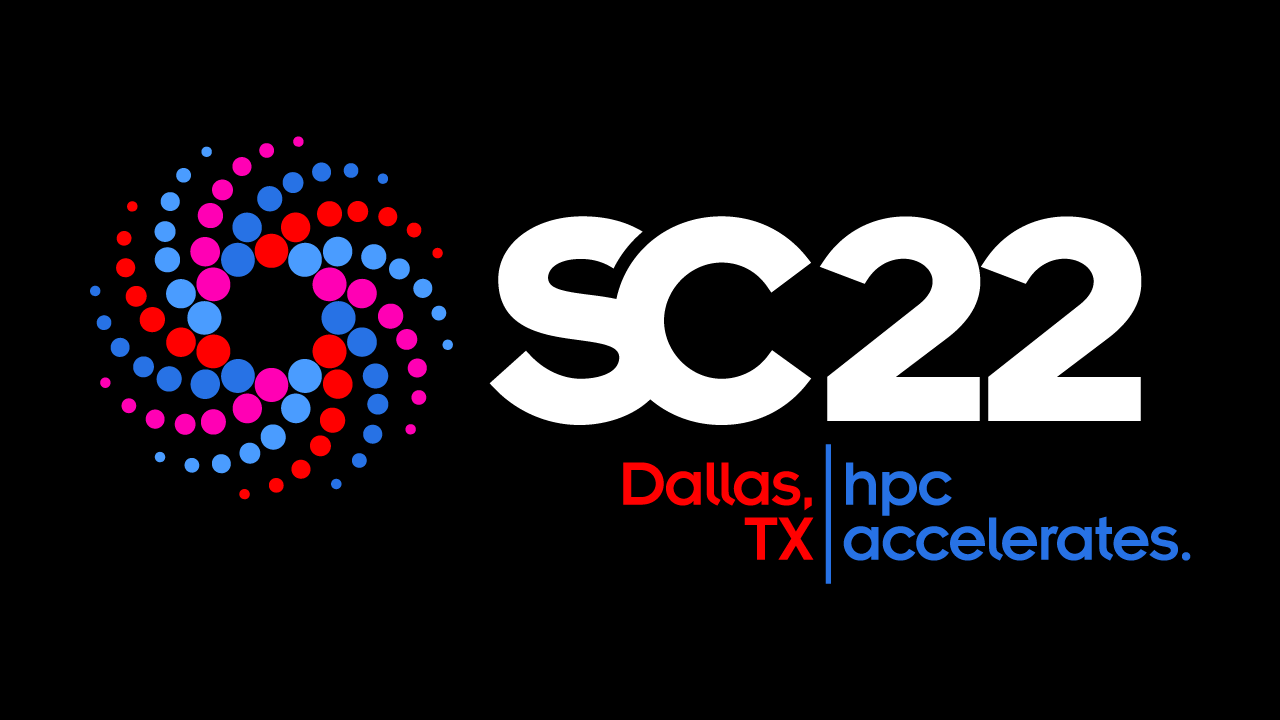 Staff from Berkeley Lab Computing Sciences Area (CSA) once again made key contributions to the technical program and related workshops and tutorials at the 2022 International Conference for High-Performance Computing, Networking, Storage, and Analysis (SC22), held this year online and in person in Dallas November 13-18.
Staff from Berkeley Lab Computing Sciences Area (CSA) once again made key contributions to the technical program and related workshops and tutorials at the 2022 International Conference for High-Performance Computing, Networking, Storage, and Analysis (SC22), held this year online and in person in Dallas November 13-18.
Here are some awards involving CSA staff and resources that were announced during the conference:
Gordon Bell Prize
A Berkeley Lab research team and their international collaborators were honored with the ACM Gordon Bell Prize during SC22 for their work in advancing the design of particle accelerators. Their winning paper, “Pushing the Frontier in the Design of Laser-Based Electron Accelerators with Groundbreaking Mesh-Refined Particle-In-Cell Simulations on Exascale-Class Supercomputers,” presents a first-of-kind mesh-refined massively parallel particle-in-cell code for kinetic plasma simulations optimized on a quartet of supercomputers: Frontier, Fugaku, Summit, and Berkeley Lab’s Perlmutter. Co-authors on the paper from CSA include Kevin Gott, Rémi Lehe, Andrew Myers, and Weiqun Zhang.
For details about this research and the individuals behind it, read “Berkeley Lab-Led WarpX Project Key to 2022 Gordon Bell Prize.”
Gordon Bell Finalist
Several CSA staff were part of a research group named as Gordon Bell Finalists for their submission, “Extreme-scale many-against-many protein similarity search.” Oguz Selvitopi of the Applied Math and Computing Research Division was the lead author of the paper, which describes how the team used more than 20,000 GPUs on the Summit supercomputer to perform an all-versus-all protein similarity search on one of the largest publicly available datasets (405 million proteins). In addition to Selvitopi, co-authors on the paper from CSA include Giulia Guidi, Muaaz Awan, Lenny Oliker, and Aydin Buluç.
More details about this research and the collaborators who contributed to it can be found in this related article.
Gordon Bell Special Prize Winners
NERSC’s Perlmutter supercomputer was one of three major computing systems used in a research project – “GenSLMs: Genome-scale language models reveal SARS-CoV-2 evolutionary dynamics” – awarded this year’s Gordon Bell Special Prize for High Performance Computing-Based Covid-19 Research. The international collaboration adapted large language models for genomic data and built genome-scale language models that are able to learn the evolutionary landscape of SARS-CoV-2 genomes.
IEEE-CS TCHPC Awards
Hang Liu, assistant professor at the Stevens Institute of Technology, is one of three winners of the 2022 IEEE-CS Technical Community on High Performance Computing (TCHPC) Early Career Researchers Award for Excellence in High Performance Computing. In 2019, Liu worked closely with CSA’s Sherry Li and Aydin Buluc at Berkeley Lab through the Sustainable Research Pathways Program, and their collaborative research effort won the group the 2019 DARPA/MIT/Amazon Graph Challenge Award.
The TCHPC awards, which were announced during SC22, recognize individuals who have made outstanding, influential, and potentially long-lasting contributions in HPC within five years of receiving their Ph.D. degree as of January 1 of the year of the award.
TOP500
The Perlmutter supercomputer landed in the No. 8 spot on the latest TOP500 list and No. 6 on the TOP500 HPCG (High-Performance Conjugate Gradient) list, which provides an alternative metric for assessing supercomputer performance.
SIGHPC Computing Honor
Former Alvarez Fellow Didem Unat – now associate professor in the Computer Engineering Department at Koç University in Istanbul, Turkey – was presented the ACM SIGHPC Emerging Woman Leader in Technical Computing Award during SC22, given to mid-career women scientists in the technical and high performance computing (HPC) communities. The award, presented every two years during the SC conference, recognizes Unat’s innovative work in designing programming abstractions and tools for data locality in high performance and scientific computing, as well as her leadership role in the international HPC community.
Best Research Poster
Norm Buchanan, an associate professor in the Department of Physics at Colorado State University, was awarded best research poster for his work using NERSC’s Cori and Perlmutter systems to analyze NOvA neutrino data. The poster outlined the NOvA analysis workflows Buchanan and colleagues developed and implemented on Cori and Perlmutter.
Student Research Competition
Julian Bellavita, a Student Research Assistant in CSA’s Computer Languages & Systems Software (CLaSS) group, took second place in the SC22 Student Research Competition for his poster, “Predicting Scientific Data Popularity Using dCache Logs.” The dCache installation is a storage management system that acts as a disk cache for high-energy physics data.
About Computing Sciences at Berkeley Lab
High performance computing plays a critical role in scientific discovery. Researchers increasingly rely on advances in computer science, mathematics, computational science, data science, and large-scale computing and networking to increase our understanding of ourselves, our planet, and our universe. Berkeley Lab’s Computing Sciences Area researches, develops, and deploys new foundations, tools, and technologies to meet these needs and to advance research across a broad range of scientific disciplines.
About Computing Sciences at Berkeley Lab
High performance computing plays a critical role in scientific discovery. Researchers increasingly rely on advances in computer science, mathematics, computational science, data science, and large-scale computing and networking to increase our understanding of ourselves, our planet, and our universe. Berkeley Lab's Computing Sciences Area researches, develops, and deploys new foundations, tools, and technologies to meet these needs and to advance research across a broad range of scientific disciplines.

